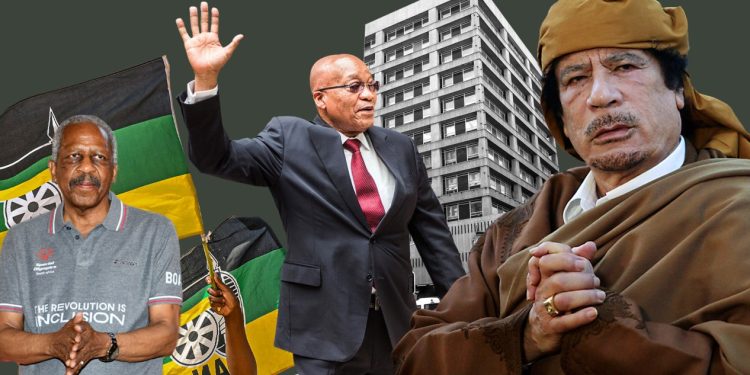- Former ANC Treasurer-General Mathews Phosa disclosed that the ANC received substantial financial support from Libya’s late leader Muammar Gaddafi for its 2009 election campaign, highlighting Gaddafi’s role in supporting African liberation movements.
- Gaddafi’s donation is part of his larger legacy of backing African political movements, contributing both financially and militarily to liberation groups throughout the continent.
- Phosa’s revelation is expected to spark discussions around the ethics and transparency of foreign funding in South African politics, as well as the ANC’s historic ties with influential international figures.
In a recent revelation, former African National Congress (ANC) Treasurer-General Mathews Phosa confirmed that the ANC received a substantial financial contribution from then-Libyan leader Muammar Gaddafi to support its 2009 election campaign. This disclosure sheds light on Gaddafi’s deep-rooted ideological commitment to African unity and his strategy of supporting liberation movements, especially the ANC, whose anti-apartheid efforts he had long endorsed.
During an interview, Phosa described Gaddafi’s contribution as “substantial,” crediting the financial support with aiding the ANC’s campaign at a time when the party faced both domestic and economic challenges. He framed the donation as part of Gaddafi’s broader vision to foster alliances with African liberation movements. Throughout his leadership, Gaddafi championed African causes, providing financial and military support to movements opposing colonial or authoritarian rule in Africa.
This revelation turns attention to the role of foreign funding in South African politics, a practice not uncommon in liberation-era alliances but one that now raises questions about transparency and influence. While the ANC has historically received support from various international allies, Gaddafi’s backing underscores the influential role that foreign figures have played in shaping South Africa’s political landscape. As one of the ANC’s significant allies, Gaddafi was known for consistently supporting anti-apartheid organizations and advocating for African self-determination.
The ANC has not issued a formal response to Phosa’s statements, nor have specific details regarding the donation’s amount or exact use been disclosed. However, Phosa’s account may ignite a national conversation about the ethics of foreign contributions to political campaigns, particularly in a democracy where transparency and accountability are paramount. Analysts suggest that this disclosure could prompt public calls for clearer regulations around foreign donations and greater transparency in party financing.
Beyond South Africa, Gaddafi’s financial support points to his larger ambitions of unifying and shaping the African political sphere. His substantial investments in African movements reflected a strategic vision of a powerful, unified Africa, with Libya often acting as a key financial and logistical backer of African liberation groups.
Phosa’s account provides insight into the ANC’s external alliances, revealing the extent to which foreign support has influenced the party’s trajectory as South Africa’s leading political force. As the nation’s attention turns to these historical ties, discussions around the ANC’s foreign support could reshape perspectives on South Africa’s political funding landscape. The impact of such contributions, especially in a shifting economic and political landscape, may prompt South Africans to re-evaluate the role of foreign funding in their democracy and potentially push for reforms to ensure transparency and accountability in the future.






















